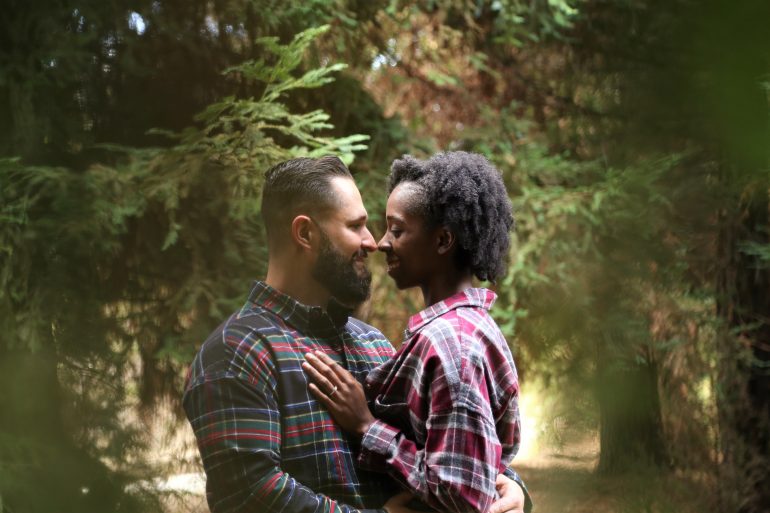On May 25th, George Floyd a 46-year-old African American was killed by the Minneapolis police. His death has spawned a civil rights movement with protests in support of Black lives taking place across the globe.
I know you’re probably wondering: why are you writing about racism and civil rights in a wedding publication? Well, the answer is quite simple. According to Pew Research Institute, approximately 11 million Americans are currently part of an interracial union.
For most of us, our primary source of emotional support comes from our partner. If you’re a non-black person and your partner is Black, it’s important — now more than ever — that you examine your own relationship to racism and educate yourself so you can be the best possible ally to your loved one.
Simply being in an interracial relationship isn’t enough.
As I shared in the Toronto Sun recently, an uncomfortable truth I’ve had to grapple with recently is that having a Black partner doesn’t exclude me from doing anti-racist work. We all have work to do — myself included. There are still things I need to learn and unlearn.
As non-black people, it’s our responsibility to figure out how to best support our Black partners so they feel safe, loved and validated every single day.
But what exactly does that look like? What happens if you do or say the wrong thing?
To gain some insight, I spoke with Amy Worrell, a mom of two and co-author of the blog Milk and Coco where she and her husband Shaun, share their experiences parenting in an interracial relationship (Amy is white and Shaun is Black).
“Being an advocate isn’t something that only comes out when things hit the news in our home. When we first got together it was evident that Shaun was treated differently and from day one, I have been one to speak up about it,” she says.
Do the work.
Worrell says that as non-white folks, we can’t expect our partners to educate us. We need to step up to the plate and do the anti-racist work.
“I personally do not believe that it is up to Shaun to speak up and educate. I can only imagine that it is tiring enough to have to deal with what is going on as a black man, so I am loud enough for the both of us. (This is not just with Anti-Racism, I’m just loud).”
Take initiative to educate yourself. Read anti-racist books (Worell has a list of anti-racist books on her blog), listen to podcasts, watch documentaries and listen to Black voices.
Listen and validate.
Telling your partner that you “don’t see colour” isn’t helpful. It’s hurtful because it erases their experience as a Black person. Instead, listen to your partner’s experiences, feelings, fears and concerns without inserting yourself into the narrative.
Give your partner your full attention. As a non-Black person, you’re never going to fully understand what it’s like to be Black, but you can listen, empathize and learn. Honour and validate their experiences.
Support your partner’s rest.
“Not only are we living in a time where anti-racism is at the forefront, but we are also in the middle of a pandemic. We are all home, working from home, being teachers and so much more,” says Worrell.
Life is already overwhelming right now. It’s critical that you support your partner’s rest
This could involve taking over some household responsibilities, so they do whatever they need to look after their physical and mental wellbeing, or if you have children planning a fun family activity that allows your partner some much needed “me-time.”
“Shaun is the strong and silent type, not one to talk it all out so I encourage: self-care, taking breaks from the news and social media, exercise, really just to do things that bring him joy. If he does start to talk about it, I know to stop what I am doing and give him 100% of my attention.”
Embrace the fact that this is a life-long process.
While thinking and talking about racism may feel new to you, your Black partner has likely been dealing with it their whole life. Your partner will never stop being Black, which means you’ll never stop having to learn.
Will you make mistakes and sometimes say or do the wrong thing? Definitely. However, when this happens, own your mistake and apologize. Listen to your partner when they explain why your words or actions hurt them and change your behavior.
Recognize that learning about anti-racism is a life-long process. There’s going to be learning curves along the way. It’s better to show up consistently and imperfectly than not show up at all.
As Worrell shares, “we know that this isn’t a sprint, and that much change needs to happen. So I (Amy) do my work to continue to educate myself and we take care of the family unit the best that we can.”
Photo by Jose Escobar on Unsplash.





